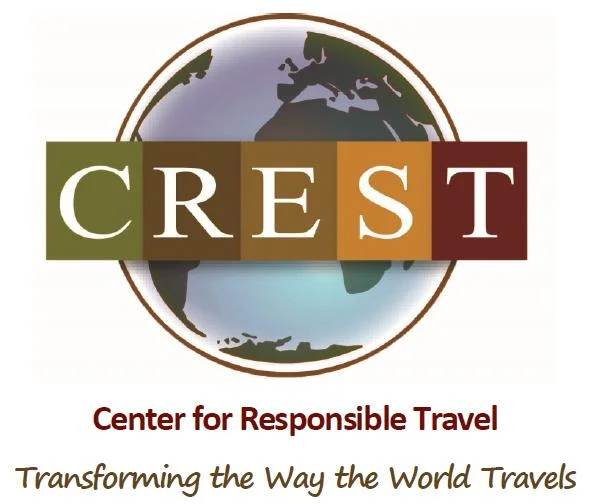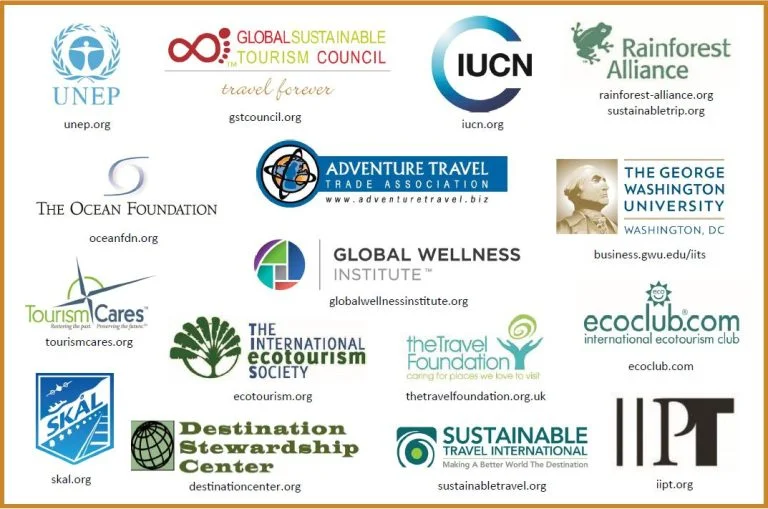
位在美國華盛頓特區的「負責任旅行中心」(2016)年度報告針對負責任旅遊的發展狀況,整合出該領域各種趨勢、統計資料以及引證數據,並且涵括了近期發表的不同面向的報告與新聞報導。特別的是,這份年度報告聚焦在與負責任旅遊密切相關、現正成功運作的兩個利基部分:探險旅遊(adventure tourism)以及安康旅遊(wellness tourism)。
The Centre for Responsible Travel annual report on the state of responsible tourism draws together a collection of trends, statistics and quotes concerning the state of responsible tourism and the various sectors it encompasses from recently published reports and news stories. Specifically, it focusses on the ongoing success of two niche sectors that are closely related to responsible tourism – adventure tourism and wellness tourism.
 負責任旅行中心:改變全球旅行方式
負責任旅行中心:改變全球旅行方式
我的好朋友王梵小姐節譯該報告部分內容,我張貼如下,敬請參考並請指正:
負責任旅遊案例:2016年趨勢與統計
The Case for Responsible Travel:
Trends & Statistics 2016
https://www.responsibletravel.org/whatWeDo/The_Case_for_Responsible_Travel_2016_Final.pdf
翻譯:王梵
2015年全球旅遊人數(過夜旅客)成長了4.4%,總人數達11億8400萬。較之2014年,2015年多了超過5000萬在國際間旅行的遊客,2015年的數字也顯示了自2009年經濟危機以來連續六年高於平均值的成長。聯合國世界旅遊組織信心指數預測2016年的國際旅遊仍會持續成長。
International tourist arrivals (overnight visitors) grew by 4.4% in 2015, reaching a total of 1,184 million in 2015. Some 50 million more tourists traveled internationally in 2015 than in 2014, and 2015 marked the 6th consecutive year of above-average growth since the 2009 economic crisis. The UN World Tourism Organization (UNWTO) Confidence Index predicts a continuation of growth in international tourism in 2016.
2015年旅遊業貢獻了7.2兆美金,佔全球GDP的9.8%,預估未來十年會以每年4%持續成長。旅遊業的GDP有77%來自休閒支出,其他23%來自商業支出。2015年旅遊業也提供了2億8千4百萬個工作機會(直接、間接以及促成的機會),佔總就業人口的9.5%,或可說是每11個人就有1個人從事旅遊相關工作。
The travel industry contributed US$7.2 trillion or 9.8% to world GDP in 2015, and is forecast to grow by 4% per annum over the next ten years. Leisure spending represents 77% of travel & tourism GDP, with business spending contributing 23%. Travel and tourism also provided 284 million jobs (direct, indirect, and induced) in 2015, representing 9.5% of total employment or 1 in 11 jobs in the world.
「國際旅遊在2015年達到新的高峰,這種茁壯堅實的表現,為全球經濟成長與創造就業機會,產生許多面向的貢獻。」聯合國世界旅遊組織秘書長Taleb Rifai表示,「對許多國家來說,推動促進觀光產業持續成長的政策是非常重要的……包括永續性。」
“International tourism reached new heights in 2015. The robust performance of the sector is contributing to economic growth and job creation in many parts of the world,” says UNWTO Secretary-General, Taleb Rifai. “It is thus critical for countries to promote policies that foster the continued growth of tourism… including sustainability.”
旅遊專有名詞
負責任旅行是與倫理道德高度關聯的詞彙之一。另外,此報告最後部分顯示出持續成長的利基市場也努力推廣負責任的旅遊。
Tourism Terms
Responsible Travel is one of several closely related terms that are ethically based. In addition, as the final section of this report demonstrates, a growing number of niche markets also promote responsible tourism.
|
類型 |
定義 |
|
生態旅遊 |
在自然區域進行負責任的旅行,顧及環境保育,並促進地方居民的福祉。 |
|
倫理旅遊 |
遊客前往目的地旅遊的主要驅動力是因為倫理議題,例如社會不公、人權、動物福利或環境。 |
|
地景(質)旅遊 |
地景(質)旅遊是為了維持或增強一個地方的特殊地景(質)特色──當地環境、遺產、美學、文化,以及居民的福祉。 |
|
扶貧旅遊 |
旅遊宗旨是為當地窮人帶來淨收益。 |
|
負責任旅遊 |
在帶來儘可能最大收益的同時,要把對環境和社會的負面影響降到最低,並且要幫助當地居民保存脆弱的文化以及生物棲地或是物種。 |
|
永續旅遊 |
旅遊活動導向經營管理所有的資源,透過保存文化整體性、基本的生態系運作過程、生物多樣性以及生活支撐系統,實現並滿足地方經濟、社會以及美學藝術需求。 |
|
CATEGORY |
DEFINITION |
|
Ecotourism |
Responsible travel to natural areas that conserves the environment and improves the welfare of local people. |
|
Ethical Tourism |
Tourism in a destination where ethical issues are the key driver, e.g. social injustice, human rights, animal welfare, or the environment. |
|
Geotourism |
Tourism that sustains or enhances the geographical character of a place – its environment, heritage, aesthetics, culture and well-being of its residents. |
|
Pro-Poor Tourism |
Tourism that results is in increased net benefit for the poor people in a destination. |
|
Responsible Tourism |
Tourism that maximizes the benefits to local communities, minimizes negative social or environmental impacts, and helps local people conserve fragile cultures and habitats or species. |
|
Sustainable Tourism |
Tourism that leads to the management of all resources in such a way that economic, social, and aesthetic needs can be fulfilled while maintaining cultural integrity, essential ecological processes, biological diversity, and life support systems. |
負責任旅行的角色
The Role of Responsible Travel
當全球不平等危機不斷加遽達到新的懸殊落差,以及大規模氣候變遷的衝擊明顯擴大時,負責任旅遊之於社會以及環境的急迫性,也持續提高。根據樂施會的統計(Oxfam International,國際發展與救援的非營利組織),全球1%最富有的人所擁有的財富比其他99%人口總和還多;全球最富有的62名富豪坐擁的財富,相當於全球收入後半人口─36億人─的資產總值。然而,全球極端貧窮人口比例還是有所下降,從1990年的36%降到了2010年的16%。受到這樣的鼓舞,2015年全球領袖基於「永續發展目標(SDGs)」,承諾在2030年前消除極端貧窮。其中第12項目標明確提及旅遊,同其他永續發展目標一樣,聚焦在永續的消費與生產模式。
The social and environmental imperative for responsible travel is growing as the global inequality crisis is reaching new extremes and the wide range of climate change impacts are increasingly apparent. According to Oxfam International, the richest 1% now have more wealth than the rest of the world combined, and just 62 individuals had the same wealth as 3.6 billion people – the bottom half of humanity. However, the proportion of the world’s population living in extreme poverty did fall from 36% in 1990 to 16% in 2010. Encouraged by this progress, in 2015 the world’s leaders committed to eradicating extreme poverty by 2030 as part of the Sustainable Development Goals (SDGs). Tourism is explicitly mentioned within Goal 12, which focuses on sustainable consumption and production (SCP) patterns, as well as in a number of other SDG targets.
就氣候變遷因素而言,自1880年有當代紀錄以來,2015年是地球表面溫度最高的一年,2015年全球均溫也破了2014年的新紀錄。全球最貧窮的人口多居住在面對氣候變遷最脆弱的區域,全球最貧窮人口的一半所排放的溫室氣體僅佔約10%,而1%最富有人口的平均碳足跡,卻是上述最貧窮人口排放量的175倍之多。
In terms of climate change, the earth’s surface temperatures in 2015 were the warmest since modern record keeping began in 1880, and globally the average 2015 temperatures shattered the previous mark set in 2014. While the world’s poorest people live in areas most vulnerable to climate change, the poorest half of the global population are responsible for only about 10% of total global emissions. The average footprint of the richest 1% could be as much as 175 times that of the poorest 10%.
無論如何,全世界已開始嚴肅面對此危機:2015年12月,196個國家在巴黎參加了《聯合國氣候變化框架公約》第21次締約方會議(簡稱COP 21),各國一致投票通過採取行動,把全球平均氣溫升幅控制在低於攝氏1.5℃之內(工業化前的水平),已開發國家同意每年提撥1000億經費幫助開發中國家將石化燃料轉換成為綠能。此協議尚需由個別簽約國政府同意。
The world community has, however, begun to take the crisis seriously: In December 2015, 196 nations attending the COP21 summit in Paris voted to take steps “to limit temperature increase to 1.5 degrees Celsius”, and developed countries agreed to create a $100 billion a year fund to help developing countries switch from fossil fuels to greener sources. The agreement has to be endorsed by each of the respective governments.
旅遊業作為全球最大的服務業以及開發中國家最興盛的產業之一,在回應氣候變遷這個議題上,扮演非常重要的角色。今天的旅遊業,佔全球二氧化碳排放量的5%,但如果將其擴散性影響加計進來,例如二氧化碳和其他溫室氣體造成的暖化效應,有可能排放更多(達14%)。2035年之前,如果沒有採取任何行動,旅遊業的二氧化碳排放量將比今天高出三倍以上。從這個道理來看,旅遊業展開具體行動以及各國朝低碳與綠色旅遊經濟方面轉型,已是勢在必行。
Tourism, as the largest global service industry and one of the top industries for developing countries, has an important role to play in the response to climate change. The tourism sector today accounts for 5% of global CO2 emissions but may be higher (up to 14%) if measured as radiative forcing, i.e. the warming caused by CO2 as well as other greenhouse gases. By 2035 and if no action is taken, the CO2 emission generated by tourism will be more than three times higher than today. In this sense, there is a clear call for action for the tourism sector and countries to move towards a low carbon and inclusive green tourism economy.
旅遊業在開發中國家非常快速地成長:2010年到2030年間,新興旅遊景點的到客人數預計會比經濟先進國家旅客人數(每年成長2.2%)高出兩倍(每年成長4.4%)。很幸運地,正如這個報告所顯示,整體而言,負責任旅遊的成長速度較之旅遊產業的總體成長,要快上許多。
Tourism is growing most rapidly in developing countries: between 2010 and 2030, arrivals in emerging destinations are expected to increase at twice the rate (+4.4% a year) of those in advanced economies (+2.2% a year). Fortunately, as this report demonstrates, the growth in responsible tourism continues to outpace the growth of the tourism industry as a whole.
 該報告合作單位
該報告合作單位
英文全本下載點:https://www.responsibletravel.org/whatWeDo/The_Case_for_Responsible_Travel_2016_Final.pdf
延伸閱讀:
本網誌「生態旅遊或觀光遊憩」專欄各文








